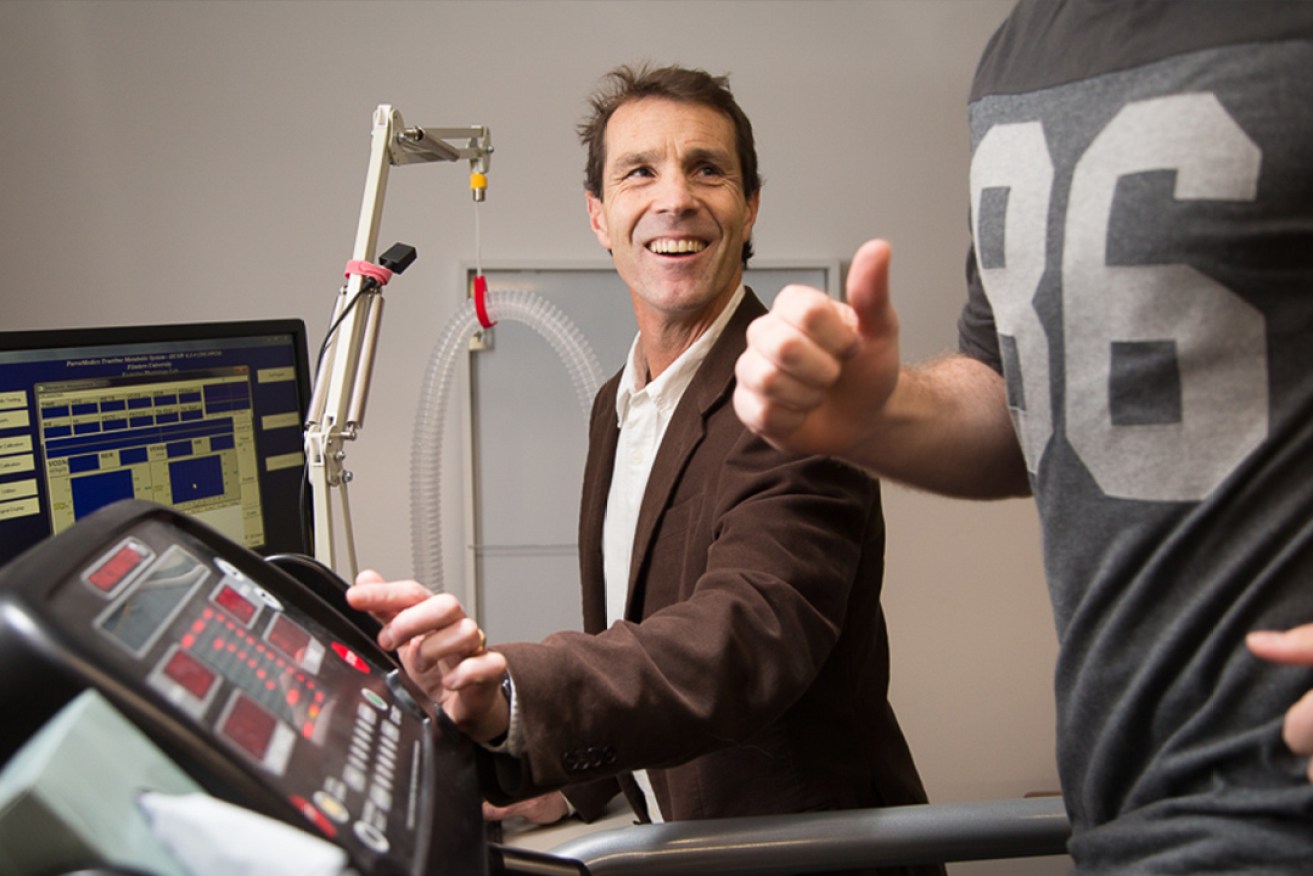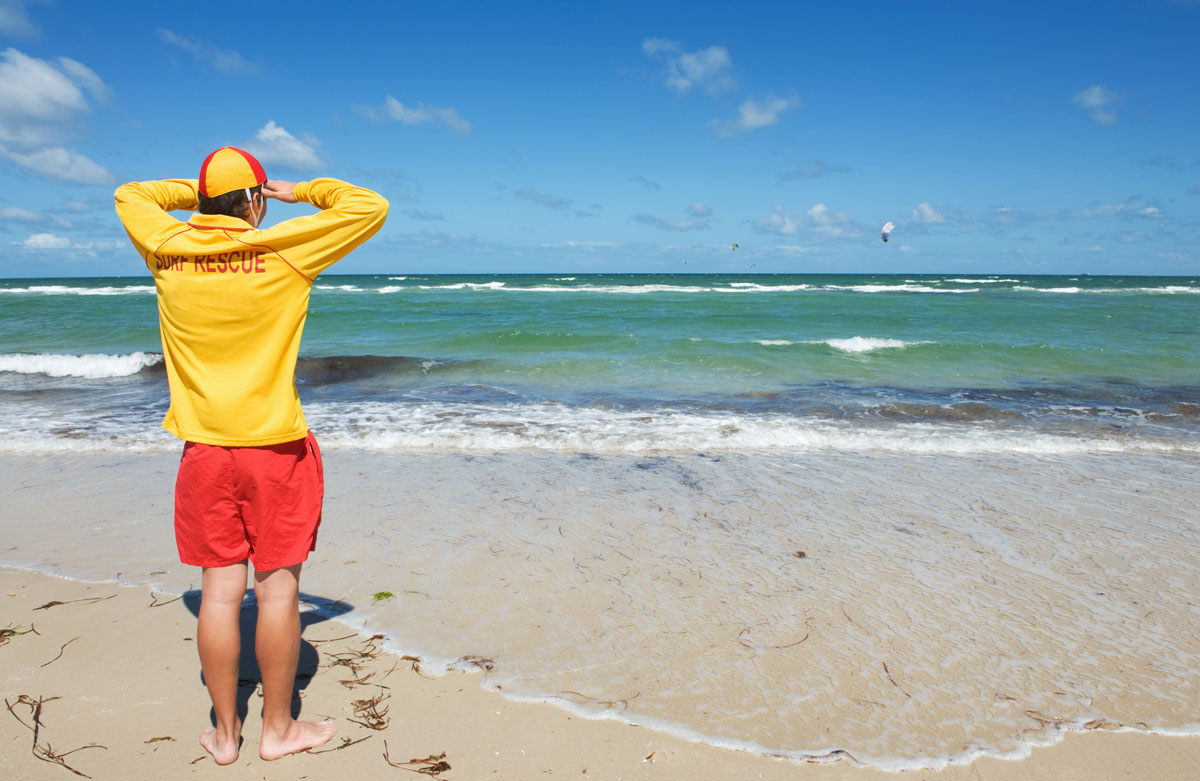
Flinders throws livesaving challenge to China
Flinders University, a supporter of this month’s historic AFL game in Shanghai, has announced a new program to help aspiring Chinese lifesavers shine at the Lifesaving World Championships in Adelaide in 2018.

Sport, Health and Physical Education (SHAPE) Research Centre Director Professor Murray Drummond assesses a young athlete’s fitness at the Flinders University gymnasium.
As one of Australia’s top centres for high performance and athlete testing, Flinders is a key supporter of a new lifesaving skills and development program offering emerging lifesaving nations, including China, the chance to shine at the championships.
The World Lifesaving Championship 2018’s Lifesaving Development and Training Program – in partnership with Flinders – is part of efforts to reduce the number of drownings internationally by bringing participating countries’ lifesaving and first aid skills up to the highest international standards.
Flinders’ high performance experts will work with participants to improve their skills and techniques in lifesaving sports (surf and pool) to allow them to be more competitive and adaptive to the different types of equipment and gear used in international lifesaving events.
The Lifesaving Development and Training Program’s primary objective is to assist emerging lifesaving organisations in the further development of life saving skills in the aquatic environment.
Professor Murray Drummond, the Director of the Sport, Health and Physical Education (SHAPE) Research Centre, says he is looking forward to helping emerging lifesavers, including Chinese, to make a difference in their home countries.
“This is an exciting opportunity to work with emerging nations in lifesaving so they can not only prepare themselves to shine at the world championships but also bring their skills back home to develop essential community services and improve participation and quality in lifesaving sports,” Professor Drummond says.
At the Lifesaving World Championships in 2016, the national Chinese team ranked 12th ahead of Canada and Ireland. It is expected that a team will compete again in Adelaide in 2018.

“China are unique because we anticipate that they will register their national team in the championships, but are also eligible for training for emerging nations in the program,” says Lifesaving World Championships 2018 Event Director, Conny Wilson.
Flinders University is home to many high performance sports academies, research centres and expertise – including the South Australian Surf Life Saving High Performance Academy – and offers world class, Golad standard undergraduate degrees in New Exercise Science, and Masters degrees in Physiology.
On Sunday 14 May, Flinders University Vice-Chancellor Professor Colin Stirling joined senior Chinese officials as one of the key drivers and supporters of China’s first AFL game in Shanghai, where Port Adelaide Football Club defeated the Gold Coast Suns in front of a sell-out crowd.
In China this month, Flinders University’s Centre for Marine Bioproducts Development signed a joint research agreement with the Shandong Academy of Sciences in Jinan to investigate the potential of new bioproducts, including nutraceuticals and Chinese medicines.
The China-Australia Joint Laboratory for Native Bioresource Industry Innovation (or CANBI2) will lead to a five-year collaboration between the Shandong Academy of Sciences and Flinders University to research and develop Australian biological resources into environmentally and ecologically friendly products and technologies.
Flinders also offers study options in China including a Masters of Arts (International Relations in Economy and Trade at Nankai University; a Master of Education (China) at Capital Normal University, Beijing; a Master of Hospital Administration at Nankai University; and a Master of Educational Leadership and Management at Nankai University.
Adelaide is sister State to China’s Shandong Province.




